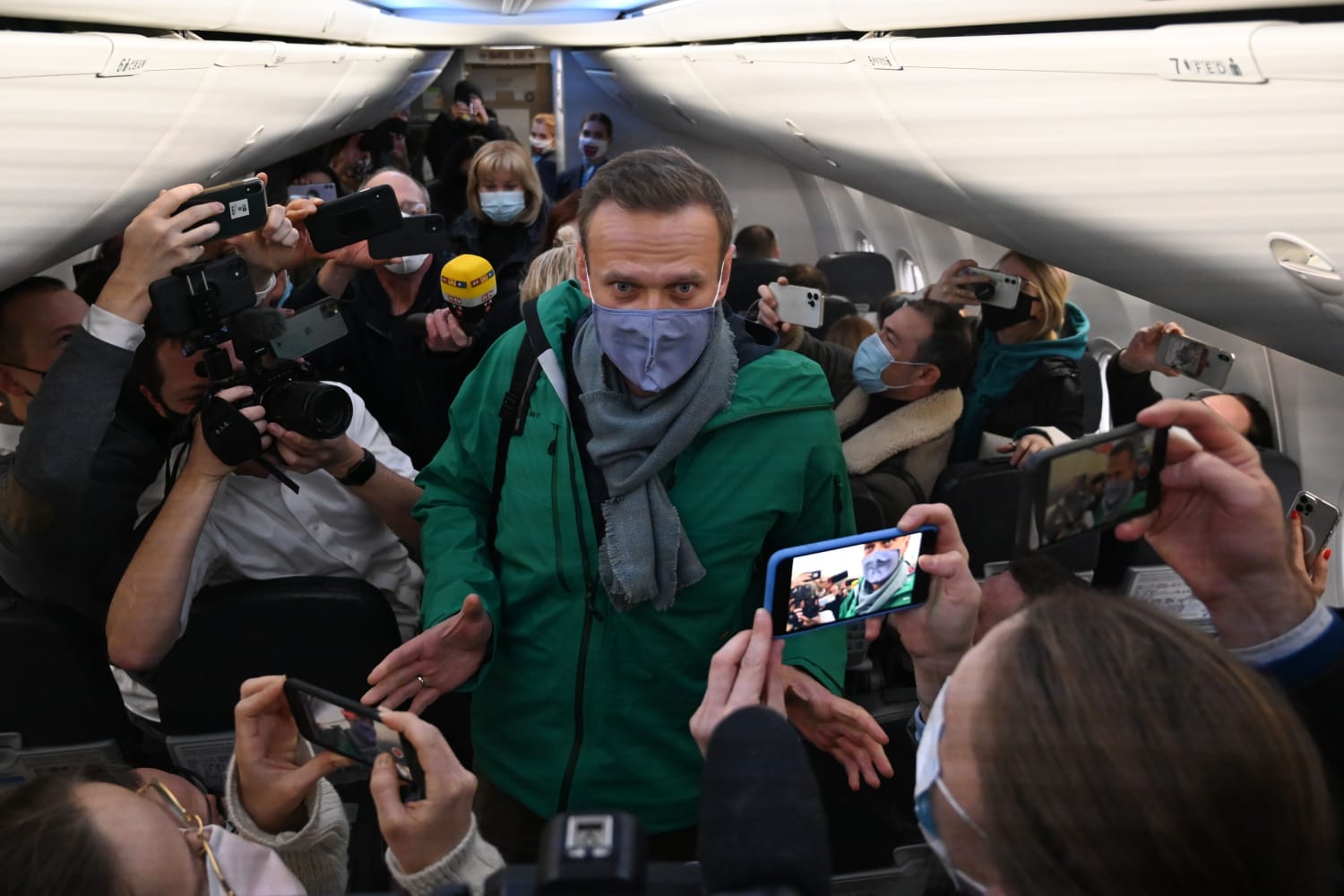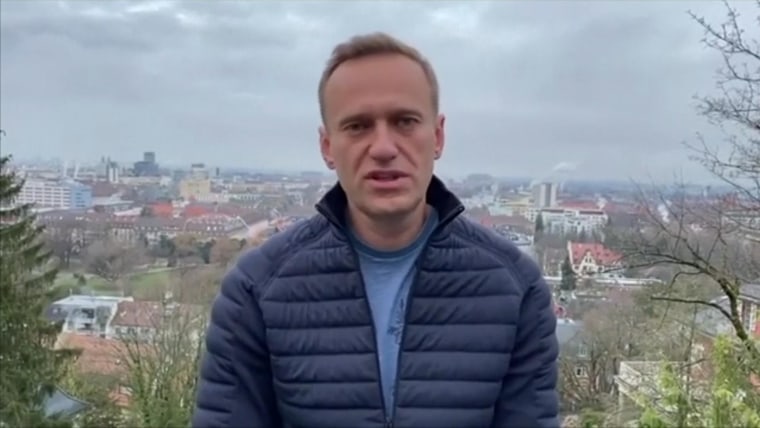Russian opposition leader Alexei Navalny defiantly flew back to Moscow on Sunday, months after he was left in a coma when he was poisoned by Novichok nerve agent.
Facing the threat of his arrest on touching down, the prominent Kremlin critic boarded a plane in Berlin, Germany, where he was evacuated for treatment in August from a hospital in Siberia on the insistence of his family.
The plane, which was originally headed for Moscow’s Vnukovo Airport, was diverted to the capital’s Sheremetyevo Airport shortly before landing, Navalny’s press officer Kira Yarmysh has confirmed in a tweet, without explaining why the plane was re-routed.
Yarmysh posted a photo of Navalny off the plane, seemingly in the airport and saying he had passed through Sheremetyevo’s border control security.
While Navalny, 44, was in the air, Russia’s Dozhd TV broadcaster showed images of Navalny’s associates, including lawyer and politician Lyubov Sobol, getting detained as they were waiting for the politician to arrive at the Vnukovo airport.
Inside and outside the airport, hundreds defied a warning from the Moscow Prosecutor’s office to welcome Navalny when he touched down. Dozhd TV showed images of some supporters being detained and riot police moving in.
Security measures were also heightened at the airport and several prisoner-transport trucks could be seen outside.
Hours earlier, wearing a bright green jacket and carrying a small suitcase, Navalny boarded his Moscow-bound flight and waved to the throng of reporters and other passengers, before he was applauded by some as he entered the plane.
“I am very, very happy today,” he said, adding that he felt like “a Russian citizen who has every right to come back home.”
Asked if he was concerned about going back to Russia, Navalny countered, “Why would I be scared of Russia? What bad things can happen to me in Russia?”
Navalny announced his decision to return to Moscow on Wednesday, signaling his intention to continue his political struggle against Russian President Vladimir Putin.
In an online video message, he said it had never crossed his mind not to return to Russia.
“This is because I didn’t leave. I ended up in Germany — in an intensive care box — for one simple reason: they tried to kill me,” he said.
A thorn in the Kremlin’s side for more than a decade, exposing what he says is high-level corruption and mobilizing crowds of young protesters, he fell ill on a flight to Moscow from Tomsk, a city in Siberia, on Aug. 20.
The plane was forced to make an emergency landing in the town of Omsk, which is also in Siberia. There, he was taken to hospital for treatment and placed into a medically induced coma.
Supporters of the anti-corruption campaigner, who was barred from challenging Putin for the Russian presidency in 2018, immediately said they believed he was poisoned.
But Russian doctors said their initial investigation did not indicate that was the case and instead suggested that he may have suffered a metabolic problem.
After a medical team flew in from Germany, the politician’s family insisted that he be transferred to Berlin for treatment.
Germany later concluded that the politician was poisoned with Novichok, the Soviet-era military-grade nerve agent, and Navalny’s associates accused President Putin of being behind it.
Download the NBC News app for breaking news and politics
However, the Kremlin has denied all involvement, insisting there is no evidence that Navalny was poisoned and refusing to start a criminal investigation into the incident. Moscow has also insisted that Navalny was free to return home like any Russian citizen.
His supporters fear the politician could be jailed because his poisoning has elevated his status as the Russian government’s strongest foe both inside the country and internationally.
At the end of December, Russia’s Federal Penitentiary Service warned Navalny that he faced time in prison if he fails to immediately report to its office in line with the terms of a suspended sentence and probation he received for a 2014 conviction, which the politician has rejected as politically motivated. The European Court for Human Rights has ruled that his conviction was unlawful.
It said Thursday that Navalny was on a wanted list, with an order out to arrest him.
The Associated Press contributed to this report.
Source: | This article originally belongs to Nbcnews.com











